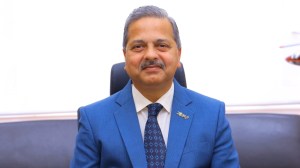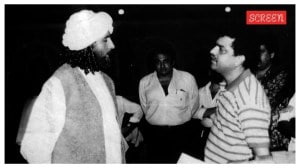Discovery’s new show: US, Pak & the hunt for Al-Qaeda
Politics, it is said, makes strange bed-fellows. So too does the fight against Al-Qaeda. The first part of a top-notch two-hour documentary,...

Politics, it is said, makes strange bed-fellows. So too does the fight against Al-Qaeda. The first part of a top-notch two-hour documentary, The new Al-Qaeda—Frontline Pakistan and Jihad.com, on the Discovery Times Channel, examines the marriage of convenience between Pakistan and the US and Britain.
Before September 11, 2001, Pakistan was devoutly pro-Taliban as a way to keep peace along its border with Afghanistan. Even after Pakistan switched sides, its army and intelligence service remained rife with the ultra-orthodox Taliban sympathisers, which may have hampered the early search for Osama bin Laden.
The US would like Pakistani military strongman Pervez Musharraf, who seized power in 1999, to try a bit of democracy. Musharraf is pressuring the US to soften its support for Israel. Frontline Pakistan captures the sometimes tense, always complicated relationship between Washington and Islamabad.
To back the US, Musharraf has put his life in danger; he has escaped at least two assassination attempts. ‘‘Pakistan is turning Islamist,’’ says a former CIA agent. ‘‘Musharraf may have done all he can,’’ he added.
BBC reporter Peter Taylor has gotten access to Pakistani intelligence agents and military brass to explain their hunt for Al-Qaeda operatives involved in strikes against Western targets, including US embassies in Africa. In retaliation for Pakistan’s cooperation with the West, Al-Qaeda attacked the Marriott Hotel in Islamabad.
If the first hour of the documentary is unsettling, the second, Jihad.com, is the stuff of nightmares. The ‘‘new’’ Al-Qaeda is regrouping via the Internet, spreading word and pictures of its attacks on US and British forces in Iraq and Afghanistan.
An executive of a Philadelphia company that monitors the Internet calls it ‘‘an unbelievable recruiting tool’’ for Al-Qaeda. Recruits are often middle-class, Internet-accessible young men in the West, not the stereotype of Al-Qaeda ‘‘martyrs’’ as embittered, delusional souls from impoverished villages. Pictures of beheadings and bombs blowing up Humvees are posted almost immediately through a kind of insurgent cyber-cafe network.
Al-Qaeda, through its use of the Internet, has become a ‘‘global brand.’’ —LAT-WP






- 01
- 02
- 03
- 04
- 05

























